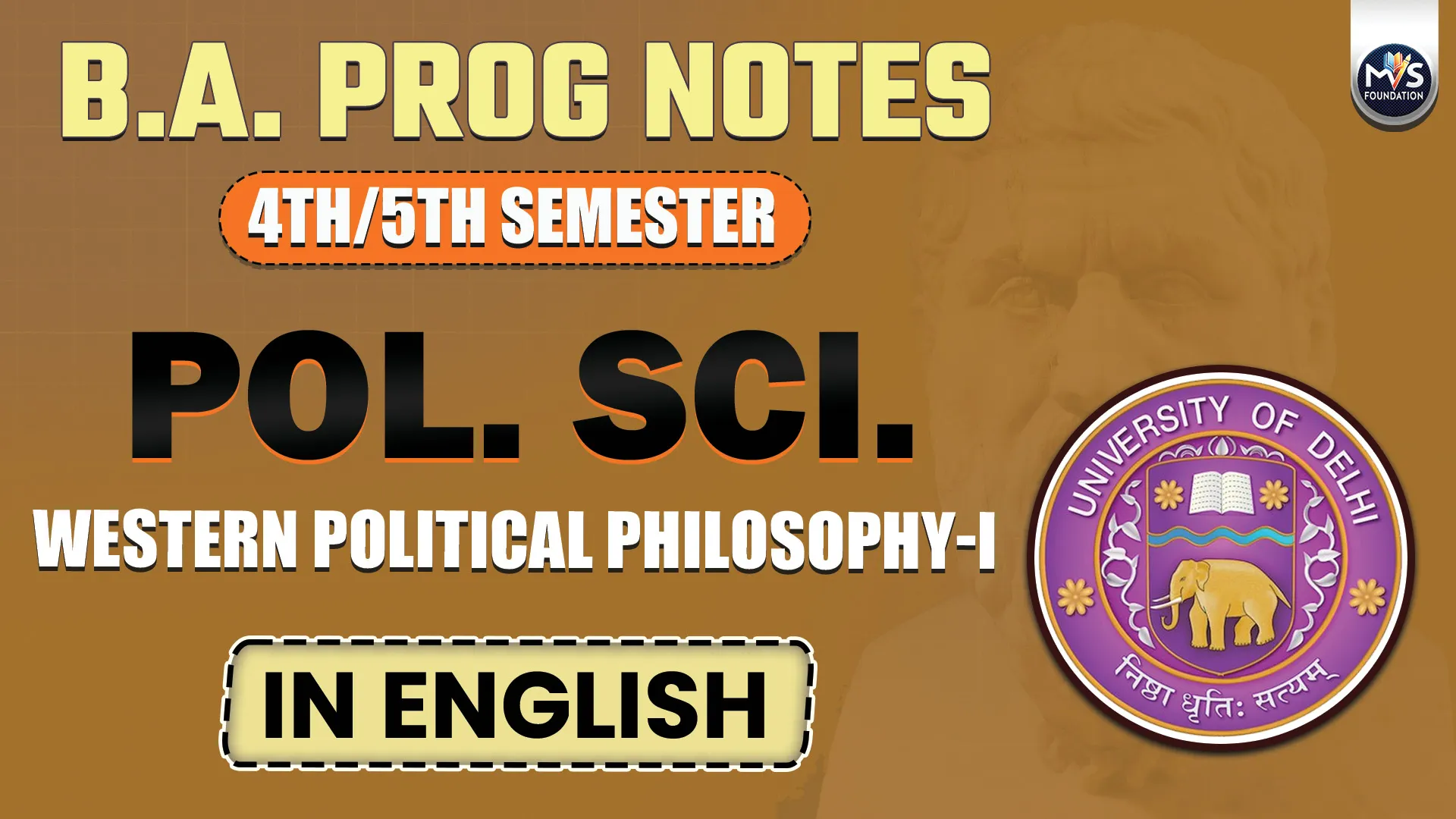
Get in Touch
We will get back to you within 24 hours.
Welcome to MVS Blog

Q1. Why and how should political philosophy be studied? Describe Skinner's idea of 'Historical Absurdities'.
Answer
Introduction
Political philosophy is a branch of philosophy that seeks to define what an ideal socio-political system should look like. Its main purpose is to understand what government is, how it should be formed, how a good society can be created, and which principles, values, and policies are important for this. Topics within political philosophy include politics, justice, freedom, property, law, and rights.
Why we should study political philosophy:
Political philosophy is not just an intellectual debate; it is connected to important aspects of a person's social and political life, which makes its study essential. It gives us a new perspective on how society should be, what the rights and duties of citizens should be, and so on. John Rawls has discussed the following roles of political philosophy
| 1. Practical Role: | When there is a political conflict or dispute, political philosophy helps us find a common ground to understand and resolve the issue. By focusing on the dispute, we can work more effectively. |
| 2. Orientation: | Political philosophy inspires us to think about society and political institutions. It helps us see and understand ourselves as citizens and participants in society. |
| 3. Reconciliation: | By understanding the various institutions of society and their history, we can align ourselves with their current state and recognize the inconsistencies within them. This helps us better accept different aspects of society. |
| 4. Probing the limits of practicable political possibility: | Political philosophy helps us envision a future that aligns with our ideals yet remains realistic. It also allows us to understand which changes in society are possible and which are not. |
How to study political philosophy:
1. Understand time and historical contexte: To understand the ideas of political thinkers, it is essential to know the social, economic, and political conditions of their time. Every thinker's. ideas are influenced by the problems and needs of their era. Therefore, to understand these ideas correctly, we must consider them in the context of that period.
For example, Thomas Hobbes was influenced by the English Civil War of his time and proposed the theory of the "Social Contract" to maintain peace and order in society.
2. Compare with modern perspective: When understanding old political ideas and theories, it is important to view them in the context of today's times. Many ideas in history were developed to address specific conditions and challenges of their time, yet many of these ideas remain relevant today.
For example, Marx's theory of critique on capitalism was meant to highlight the exploitation of workers in his time. Even today, this theory helps in understanding situations where workers' rights are violated.
Skinner's idea of 'Historical Absurdities':
According to Skinner, the correct way to study political philosophy is not to view any idea in a single, fixed direction. Doing so makes it difficult to understand the idea and its purpose, and it prevents a historically impartial study. Skinner warns us against certain scholarly tendencies, which can lead to interpretations of thinkers' ideas that he calls "Historical Absurdities."
Quentin Skinner
1. The First Form of Mythology of Doctrine
2. The Second Form Of Mythology Of Doctrine
3. Mythology of Coherence
4. Mythology of Prolepsis
Conclusion
Skinner believes that to avoid these "historical distortions, we should view thinkers in the context of their own time, understanding their circumstances and problems, rather than judging them by modern standards. We should study their theories with historical impartiality to accurately assess their original ideas and contributions.
0 Response